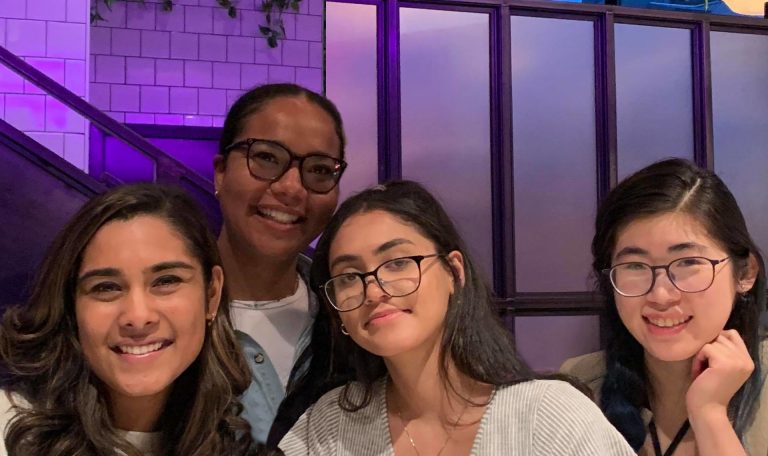Three Concordia student teams prepare to meet the World’s Challenge Challenge

Reusable shipping containers for online deliveries. Interactive 3D-models for teaching. Autonomous robots to clean ocean surfaces. These are the concepts that three student teams are busy working on as they vie to represent Concordia at the World’s Challenge Challenge (WCC) hosted by Western University in London, Ontario, next June.
The annual competition, which gathers more than 30 university student teams, aims to engage students in thinking about and finding tangible solutions to the United Nations’ Sustainable Development Goals (SDGs). This is the first year Concordia is competing.
“Participating in the World’s Challenge Challenge could help get Concordia more involved in International Development and contribute to the advancement of the SGDs, either locally or globally,” says Joaquin Navas, Officer of International Projects for Concordia International, who initiated the effort. Concordia International represents the university in its global partnerships with more than 180 higher education institutions.
To qualify for the WCC at Concordia, students had to ensure that their projects were aligned with a Concordia course and have at least one team member enrolled in the course. The project had to be clearly linked to one SDG or more and stipulate a measurable outcome. Teams also had to find potential mentors for the project.
Distinct projects
Students from the three teams come from Concordia’s Gina Cody School of Engineering and Computer Science and Faculty of Arts and Science. Their projects are innovative — and ambitious. They will cover a range of the Global Goals, including SDG 4 – Quality Education, SDG 6 – Clean Water and Sanitation, and SDG 12 – Responsible Consumption and Production.
The aim of the first group, called Team Alleyoop, is to create durable, reusable shipping boxes and envelopes to replace single-use packages for ecommerce, employing recycled materials such as textiles and plastics destined for landfill.
The team is made up of mechanical engineering student Amy Tran, Vanessa Pereira from cell and molecular biology, Anjali Bhardwaj from software engineering and Meilani Sinnathamby from aerospace engineering.
“We’re trying to develop a prototype that shows that our idea is possible,” Pereira says. “We’re trying to show that it is a great alternative to what we have now, it’s not super-hard and it’s affordable, among other things.”
Tran adds that the team will take advantage of funding available for Concordia students, such as the Sustainability Action Fund or the FundOne crowdfunding platform.
Team Epista is working on a virtual-presentation tool for teachers and instructors, using 3D models. Among its other features, the tool will allow teachers to combine multiple models, create slideshows to teach a concept step by step and let students control the models.
The team is comprised of software engineering students Yasaman Sabbagh Ziarani, Sean Mackenzie, Justin Loh, Ruochen Jia and Tashfia Naharin Proma.
Sabbagh Ziarani explains that the proposed 3D model’s aim is to help teachers offer students a more dynamic virtual learning experience. “They will open doors for teachers to have more interactive lessons and experiments, with the potential to expand on the models,” she says.
Furthermore, these projects offer all the students the chance to create something real. “We want to have an application and end product that works,” Sabbagh Ziarani notes.
“It’s like a puzzle,” Jia adds. “The product we’re doing is 99 per cent new for us, so we have to create and build it and learn all the new stuff in time. So definitely it’s hard, but it will also be a fun journey to just see how it works.”
Team OWR members Joo Yeon Lee from software engineering, Cristian Issac Garcia and Maria Fernanda Mayorga from electrical engineering and Camila Mayorga and Hadrien Muller from mechanical engineering are looking to fabricate a robot that autonomously travels aquatic surfaces collecting waste and classifying it as plastic or metal.
Concordia’s WCC organizers will appoint a panel of judges that will choose the winning team based on the quality of the solution or idea, how it supports the SDGs and its measurable anticipated impact, among other criteria. Western University recently announced that this year’s WCC will be held virtually.
“I think the World’s Challenge Challenge will give the students the opportunity to engage in discussion and debate about world issues and be able to gain perspectives from other universities around the world,” says Amy Nguyen, coordinator of the Sustainability Ecosystem at the John Molson School of Business.
“The challenge enables the students to think creatively, and critically, about how to work towards the Sustainable Development Goals. I am so excited to see what the teams are able to accomplish regardless of how they place, because all their solutions tackle important issues that affect us all.”
Learn more the Concordia's World’s Challenge Challenge.


